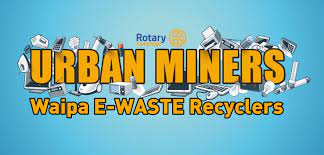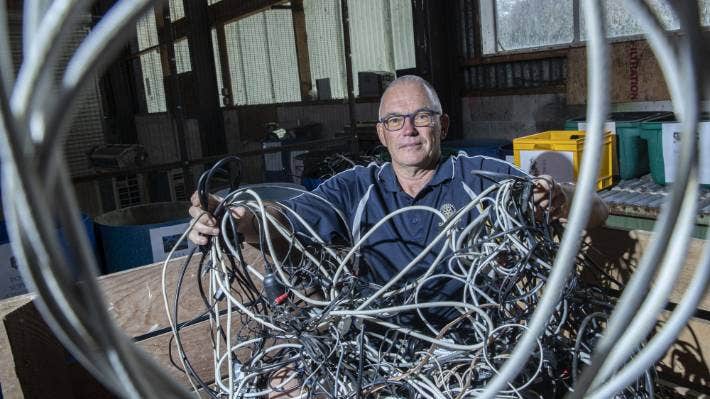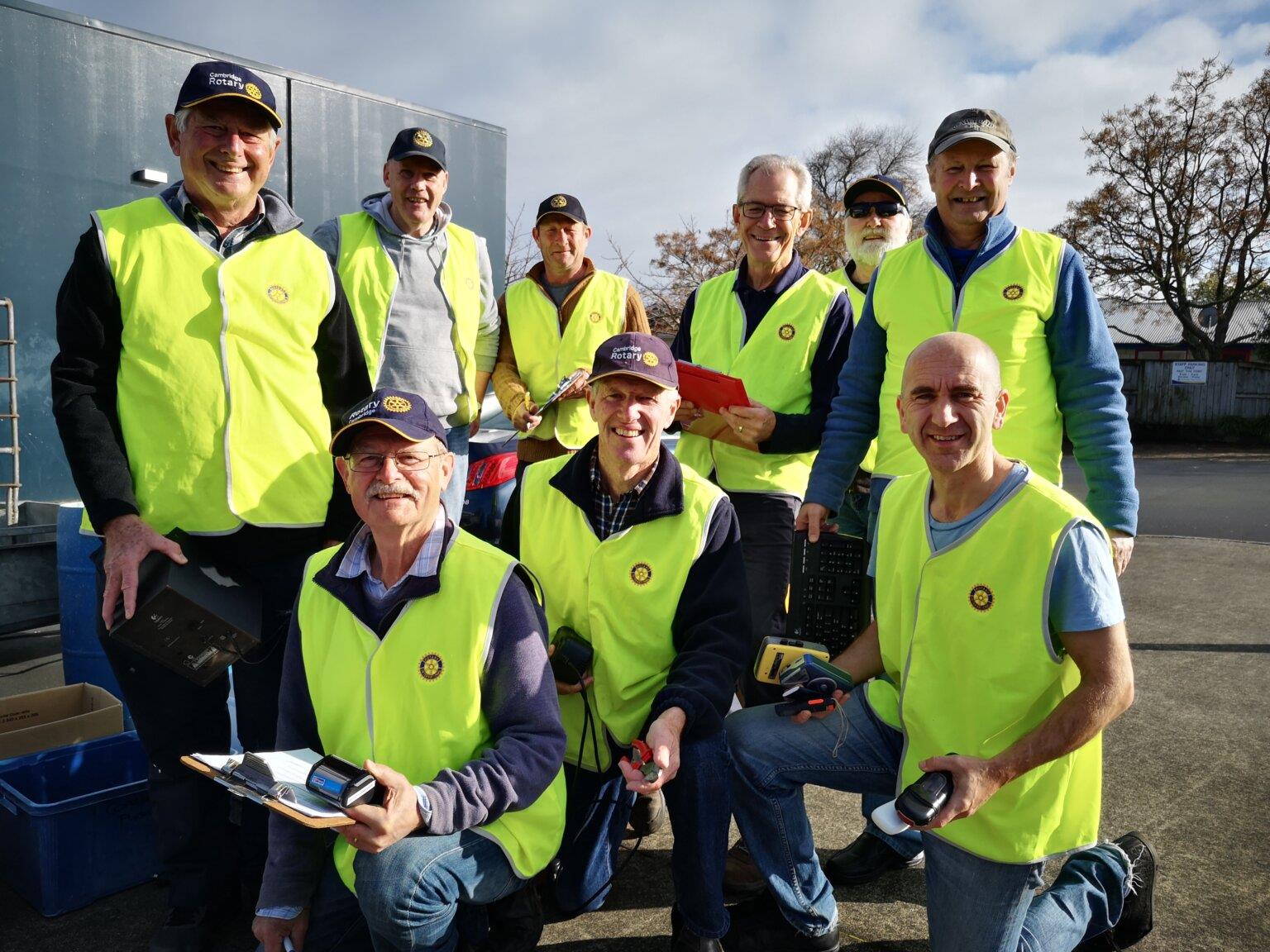 Rotary Cambridge Urban Miners were recently awarded a national accolade at the Keep New Zealand Beautiful Awards held at Parliament.
Rotary Cambridge Urban Miners were recently awarded a national accolade at the Keep New Zealand Beautiful Awards held at Parliament.Awarded the Community Group Award, this award recognises and honours a not-for-profit community group that contributes to enhancing the environmental and social aspects of their region and shows a strong sense of community spirit.
There were three very strong finalists in this category and it is fantastic that the hard work and commitment from the whole Urban Miners family has been recognised on the National stage
So who are the Urban Miners and what exactly is it that they do?
 The brain child of Cambridge Rotarians, David Blewden and Mark Hanlon, Urban Miners operates in the re-use, repair, recycle segments of the waste minimisation hierarchy. Their primary goal - to divert e-waste from landfill. E-waste is made up of electronic items that have reached the end of their useful life. Their disposal has become a major environmental issue here and around the world as globalisation, consumerism and built in obsolesce has led to a tsunami of e-waste being dumped. New Zealanders generate on average 18kg of e-waste each per year and e-waste is a major source of heavy metal contamination in landfill. Many of the metal components in e-waste are infinitely recyclable if they can be economically recovered. From batteries of all types, electric tooth brushes to bread makers, computers to televisions and printers to heat pumps Urban Miners can take most types of e-waste for recycling.
The brain child of Cambridge Rotarians, David Blewden and Mark Hanlon, Urban Miners operates in the re-use, repair, recycle segments of the waste minimisation hierarchy. Their primary goal - to divert e-waste from landfill. E-waste is made up of electronic items that have reached the end of their useful life. Their disposal has become a major environmental issue here and around the world as globalisation, consumerism and built in obsolesce has led to a tsunami of e-waste being dumped. New Zealanders generate on average 18kg of e-waste each per year and e-waste is a major source of heavy metal contamination in landfill. Many of the metal components in e-waste are infinitely recyclable if they can be economically recovered. From batteries of all types, electric tooth brushes to bread makers, computers to televisions and printers to heat pumps Urban Miners can take most types of e-waste for recycling.After two years of research it became very clear to Mark and David that an e-waste service prepared to accept all types of e-waste for diversion from landfill would not be profitable or suitable as a fund raising project. Contrary to common perception, recycling e-waste responsibly is not a license to print money. For most types of e-waste it costs more to dismantle and recycle the components than the value of the metals recovered. There is also the matter of disposal of the hard plastic cases which are not suitable for plastic recycling. Consequently small charges are levied on most items collected and Urban Miners is strictly a Community Service project. Convincing the Waipa Community that it costs to recycle responsibly has been one of numerous challenges faced during the establishment of Urban Miners.
 Community collection events are held monthly in Cambridge and Te Awamutu with the support of Rotary Te Awamutu. Run on a Sunday morning between 9 – 11am, collection events are run like a drive-through. Customers bring their e-waste to the collection event and are charged for the items that are dropped off. The collected items are transported back to the top-secret Urban Miners processing facility (fly-tipping being a major concern) provided by Waipa District Council. Here a wide range of activities are undertaken by the Urban Miners volunteers. Some items are dismantled on site with their components sorted and classified for on selling which helps off set operating costs. Many items are simply packed up on pallets and shipped off for further processing by specialised e-waste recyclers in Auckland. Typically these items cost more to recycle than the value of their recoverable materials and generate a financial liability to Urban Miners in the form of an invoice.
Community collection events are held monthly in Cambridge and Te Awamutu with the support of Rotary Te Awamutu. Run on a Sunday morning between 9 – 11am, collection events are run like a drive-through. Customers bring their e-waste to the collection event and are charged for the items that are dropped off. The collected items are transported back to the top-secret Urban Miners processing facility (fly-tipping being a major concern) provided by Waipa District Council. Here a wide range of activities are undertaken by the Urban Miners volunteers. Some items are dismantled on site with their components sorted and classified for on selling which helps off set operating costs. Many items are simply packed up on pallets and shipped off for further processing by specialised e-waste recyclers in Auckland. Typically these items cost more to recycle than the value of their recoverable materials and generate a financial liability to Urban Miners in the form of an invoice.Batteries are sorted into their respective chemistries before shipping overseas for recycling. Again generating a financial liability to the project. From time to time items are dropped off that still have some useful life left in them. These are redirected to the Cambridge Lions Club who run a very successful charity store. In return Urban Miners take faulty electronic items the Lions can’t sell – diverting these from landfill and saving the Lions dump fees. Late model computers, laptops, tablets and cell phones are assessed, repaired and resold.
Urban Miners relies on volunteers drawn from Cambridge and Te Awamtu Rotary Clubs and the wider Waipa Community for all its management, collection and processing activities. There is no need for volunteers to be Rotarians. The management team meets fortnightly. Processing and dismantling occurs during the week after a collection event with more sessions being planned as the volume of material being received continues to grow. Fellowship is a very important aspect of the Urban Miners approach. Most sessions include a bit of home baking, a cup of tea or coffee and occasionally a cold beverage or two.
Since inception late 2020 Urban Miners has diverted 15 tonnes of e-waste from landfill, made up of electronic devices of all descriptions, wiring and batteries of all types. The goal for 2022, Covid willing, is to double this to 30 tonnes
Photos: Mark Blewden (top right0; Back, l-r: Don Wilson, Andrew Bateman, Brian Palmer, Mark Hanlon, Don Windle, and Murray Glensor (above left).
